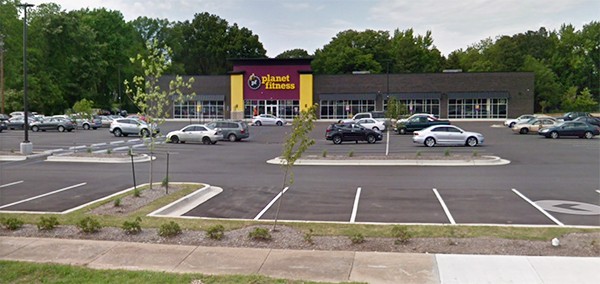In recent years, the Summer Avenue Merchants Association has been working on a marketing initiative to “rebrand” Summer Avenue as an international district. Part of this effort has included the installation of banners and flags that represent business owners’ countries of origins. According to the association, between Highland and White Station, business owners along Summer Avenue hail from more than 30 different countries.
I had heard of the Summer Avenue Merchants Association before but was not too familiar with the rebranding efforts until I reviewed some of the news coverage on the association and its work. While I am sure that they are moving forward with this marketing initiative with the best intentions, I was disheartened reading some of the language used to describe Summer Avenue and the vision they have for it. I invite them — and all of us who frequent the area — to consider the implications of naming Summer Avenue an “international district.” It is a beautiful thing to see the various cultures celebrated, but when that celebration is not accompanied by any support for the communities who contribute to the changing cultural and economic landscape that the international identity is built from, we are doing our neighbors an injustice.

Planet Fitness on Summer
Summer Avenue and its residents have changed drastically over the past decades. Anyone who grew up in the surrounding neighborhoods before the 1980s can attest to that. This has been true for people within these neighborhoods who have created greater access to culturally specific food and multilingual news resources, as well as Memphians from outside the neighborhood who patronize businesses in the area. Immigration and Customs Enforcement (ICE) recognized the growing presence of the immigrant population, undocumented people, and mixed-status families and entered the neighborhood and community spaces, terrorizing families.
I bring this up because this is one of the many things that the Summer Avenue Merchants Association and other leaders of the rebranding effort should keep in mind. Are we simply going to take people’s national identities and use them as a marketing strategy and ignore them when their family members or neighbors have been taken on the way to work or school?
Additionally, what does it mean for our city to officially recognize this area as an international district when it does not fully accept its immigrant communities? Is there an equal investment in the communities who contribute to the richness of the Summer Avenue landscape (and their safety) as there is with the rebranding?
In the High Ground News article “Summer Avenue to rebrand as an international district,” former County Commissioner Heidi Shafer was quoted as saying “the Latino community can offer a really strong family unit, and I want to strengthen that every place we possibly can.” Though this may sound like a compliment paid to Latinx families, it is important to recognize the context of that statement in a majority black city, where black families are stereotyped for being “broken,” and in a historical context that black residents integrating white neighborhoods would make it possible for families of color to move into these neighborhoods.
Given that context, the implication is no longer “Latinx families are strong” but rather “Latinx families are stronger than black families.” This is racism that puts being Latinx and black as mutually exclusive, positions black families as inferior, and pushes black families further out from the vision of Summer Avenue. Non-black Latinx people should reject the generalization that Latinx people have strong family units because statements like that can be weaponized to divide communities of color.
Ann Daramola writes, “The question of rebranding is the question of ownership, audience, and power.”
Daramola challenges us to think about who the audience is in rebranding efforts. Which audience is being prioritized? The merchants association describes Planet Fitness and Aldi’s as “desirable new businesses,” in contrast to “less desirable merchants like unlicensed flea markets and laundromats.”
What is lost here? In a neighborhood that already has nine laundromats, according to the association, it seems that these services are important to the area. For people who may not be readily able to afford washing machines and their upkeep, accessible laundromats are vital. The question then is, what are the underlying reasons that can explain why they “deter new development”? Are these sought-after businesses prioritizing the comfort and security of certain audiences?
The flea market that was replaced by the Planet Fitness was a missed opportunity. Flea markets are informal economies in communities. For various reasons, they may be people’s source of income. They are also spaces for social exchange, a convenient place for communities to engage and exchange news and information — which is important for current and new residents of the neighborhood to be able to acclimate. Fitness centers offer recreational activities that some may benefit from if they have the time, and time is a privilege, too. We cannot dismiss a flea market as “less desirable” when it was a resource for many in the surrounding communities. If efforts to renew the license were unsuccessful, next considerations could have been: How can we work with vendors, see them as potential local business owners, and create structure to equip them with the skills to sustainably run a business? Imagine the ripple effects of that.
Aylen Mercado is a brown, queer, Latinx chingona and Memphian exploring race and ethnicity in the changing U.S. South.